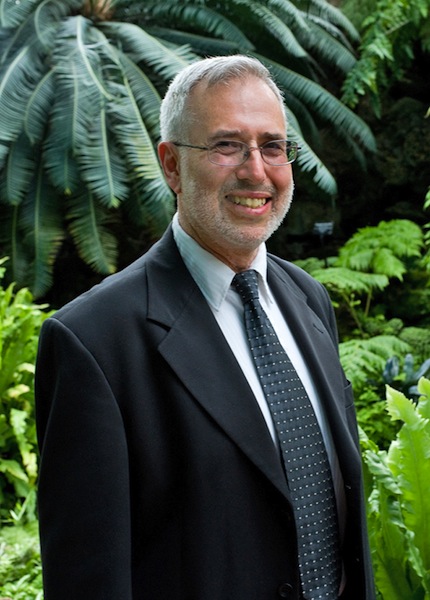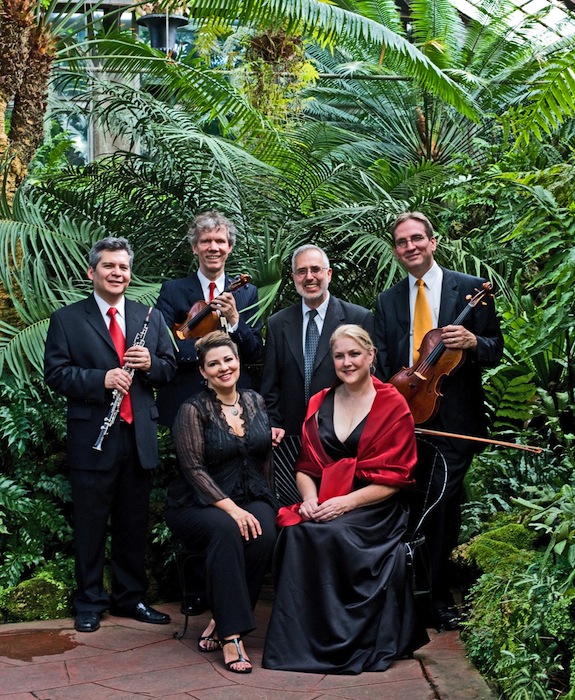The Chicago Ensemble marks 40 years of adventurous chamber music
On March 5, 1978, a young pianist and recent Yale graduate who wanted more opportunities to perform chamber music presented an all-Beethoven concert at International House on the University of Chicago campus. The program offered a violin sonata, cello sonata, piano trio, the song cycle An die ferne Geliebte, and Beethoven’s arrangements of Scottish folksongs performed by baritone and piano trio.
“It was a little crazy,” recalls Gerald Rizzer about the debut concert of The Chicago Ensemble. “The audience was small, as you can imagine. But within a couple of seasons we were doing quite well at three locations.”
The fortunes of Rizzer’s mutable group have waxed and waned over the years. But the enthusiasm, persistence and omnivorous curiosity of its founder and artistic director have enabled Rizzer’s series to reach the four-decade mark as Chicago’s most venerable and repertorially adventurous chamber music series.
And The Chicago Ensemble continues to perform at International House, where Rizzer and friends will offer a typically generous and wide-ranging wind program next Sunday. On tap are works by Gordon Jacob, Darius Milhaud, Malcolm Arnold, Alvin Etler and Jean-Michel Damase.
Though his ensemble has never enjoyed the high profile of groups like the Chicago Chamber Musicians in their heyday, Rizzer has carved out a niche for the adventurous music fan who wants to experience rarely heard works. Even among the plethora of chamber events in the city, no series offers as much American music nor digs more assiduously into neglected works of the past.
And how many classical music presenters in these cost-conscious times continue to offer a generous layout of free snacks and tasty cookies for audience members to nosh on both pre-concert and at intermission?
The Chicago Ensemble began life in 1978 as a successor to Shir, an earlier Rizzer group that explored music of Jewish composers.
“We did Bernstein and Kurt Weill but we also did Jewish-related oddities that you wouldn’t normally hear,” he recalls. “We did some Renaissance music by Salamone Rossi. We even did a work Schubert wrote for a cantor who invited him over for dinner.”
“But after a while I decided that [the programming] was too Jewish for a general audience and too sophisticated for a strictly Jewish audience.”
Thus was born The Chicago Ensemble with that marathon Beethoven concert.
“I’ve always had an affinity for chamber music, since I was at Yale,” he said. “But I felt my future was not as a soloist.
“So, the mixed ensemble idea was partly selfish, so I could play the repertory I wanted to play. And I also thought that more variety would be more appealing for the audience.”
No entity in town has provided greater nor more consistent advocacy for American music than The Chicago Ensemble. Rizzer has presented such neglected homegrown works as Walter Piston’s Piano Quintet, Aaron Copland’s Sextet, Robert Muczynski’s Piano Trio, and Paul Creston’s Suite for viola and piano, among many, many others.
Rizzer and colleagues rove equally wide internationally. Recent seasons have seen rarely heard works by Paul Hindemith, Frank Bridge, William Walton, Vincent d’Indy, Ludwig Thuille and Bohuslav Martinů rubbing shoulders with more familiar items by Bach, Mozart, Schubert and Beethoven.
“From the beginning I wanted diversity of instrumentation as well as music for voices,” said Rizzer. “And I was always interested in new music as well as the older music.
“Along the way I turned my attention to undeservedly forgotten works of the past, so they got included too. But more and more I went to being eclectic and letting my own instincts dictate the programming.”
Over the years, The Chicago Ensemble has performed in many guises and series. Among these were a shortlived “Take me to your lieder” vocal initiative, and “Great Music in Great Spaces,” which presented concerts in architecturally significant Chicago buildings.
Perhaps Rizzer’s most laudable initiative is “Discover America.” Launched in 1992 in the 500th anniversary year of Columbus’s voyage, this ongoing new-music competition has resulted in over fifty contemporary works being selected as “winners” and subsequently performed by The Chicago Ensemble.
Among these have been Jan Swafford’s They Who Hunger, Gregg Kallor’s Exhilaration, Roger Zare’s Violin Sonata, Alexandra Gardner’s Crows, Wendy Lee’s My Cagey Companions, and Michael-Thomas Foumai’s epic Songs of the Kisaeng, a 20-song cycle set to ancient Korean texts. (All the cited works have been reviewed and are searchable in the CCR archive.)
The Chicago Ensemble has played at many city and suburban locales over the decades, from the salon-like Three Arts Club on North Dearborn, to nightclubs, museum galleries and Rosary College (now Dominican University). Rizzer recalls one concert scheduled for that River Forest school in which the musicians arrived only to find out the hall had been double-booked and another event was already taking place. Rizzer and his colleagues simply moved to Concordia College around the corner to play their concert taking the audience with them.
With an annual budget of just $30,000, The Chicago Ensemble is on the smaller side of local music organizations, to say the least. But dollar for dollar, few offer more musical variety and game exploration than Rizzer’s hardy band under the direction of the soft-spoken pianist who wears his scholarship lightly and unpretentiously.
But why the somewhat humdrum title of The Chicago Ensemble?
“I deliberately chose a generic name so that people would say ‘I’ve heard of it’ even when they hadn’t,” said Rizzer.
“Forty seasons later, there are still a lot of people who haven’t heard of us,” he admits. “But those who have discovered us usually are pleased to encounter music that they might not ever hear elsewhere.”
The Chicago Ensemble performs 3 p.m. Sunday at International House in Hyde Park. The wind-centered program will include Gordon Jacob’s Trio, Darius Milhaud’s Sonata, Op. 47, Malcolm Arnold’s Divertimento, Op. 37, Alvin Etler’s Sonata No. 1 in B flat Major, and Jean-Michel Damase’s Wind Quartet.
The Chicago Ensemble will conclude its season May 14 and 16 with Paul Hindemith’s Violin Sonata in C Major, Bohuslav Martinů’s Cello Sonata No. 2, and Dmitri Shostakovich’s Piano Trio No. 2. thechicagoensemble.org
Posted in Articles




